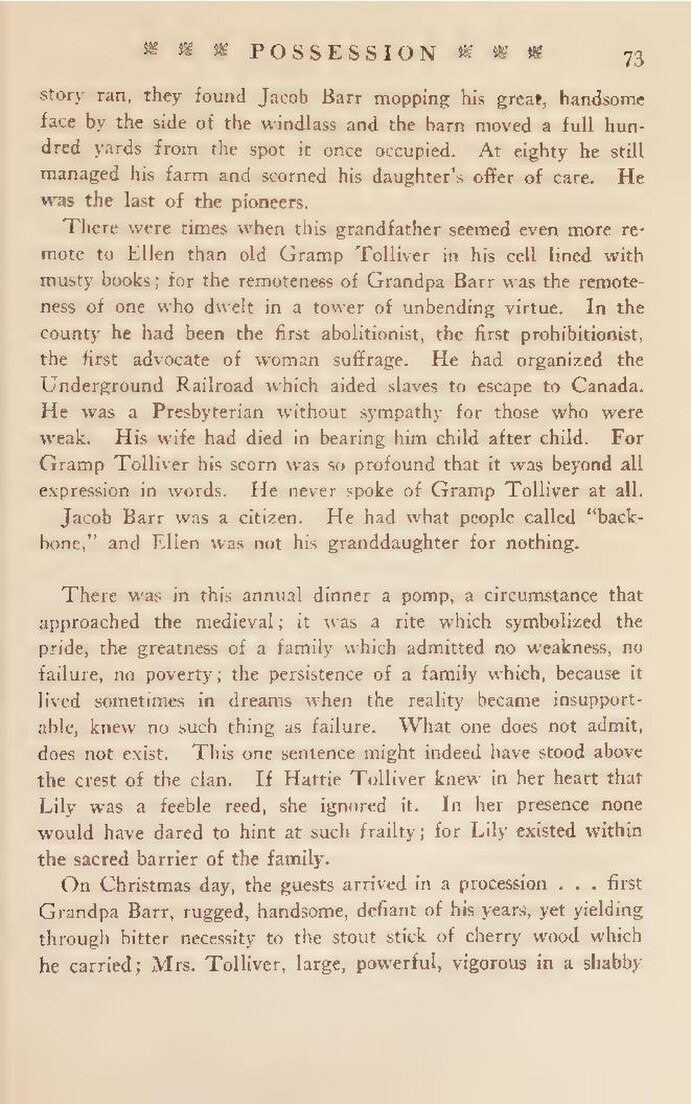story ran, they found Jacob Barr mopping his great, handsome face by the side of the windlass and the barn moved a full hundred yards from the spot it once occupied. At eighty he still managed his farm and scorned his daughter's offer of care. He was the last of the pioneers.
There were times when this grandfather seemed even more remote to Ellen than old Gramp Tolliver in his cell lined with musty books; for the remoteness of Grandpa Barr was the remoteness of one who dwelt in a tower of unbending virtue. In the county he had been the first abolitionist, the first prohibitionist, the first advocate of woman suffrage. He had organized the Underground Railroad which aided slaves to escape to Canada. He was a Presbyterian without sympathy for those who were weak. His wife had died in bearing him child after child. For Gramp Tolliver his scorn was so profound that it was beyond all expression in words. He never spoke of Gramp Tolliver at all.
Jacob Barr was a citizen. He had what people called "backbone," and Ellen was not his granddaughter for nothing.
There was in this annual dinner a pomp, a circumstance that approached the medieval; it was a rite which symbolized the pride, the greatness of a family which admitted no weakness, no failure, no poverty; the persistence of a family which, because it lived sometimes in dreams when the reality became insupportable, knew no such thing as failure. What one does not admit, does not exist. This one sentence might indeed have stood above the crest of the clan. If Hattie Tolliver knew in her heart that Lily was a feeble reed, she ignored it. In her presence none would have dared to hint at such frailty; for Lily existed within the sacred barrier of the family.
On Christmas day, the guests arrived in a procession . . . first Grandpa Barr, rugged, handsome, defiant of his years, yet yielding through bitter necessity to the stout stick of cherry wood which he carried; Mrs. Tolliver, large, powerful, vigorous in a shabby
